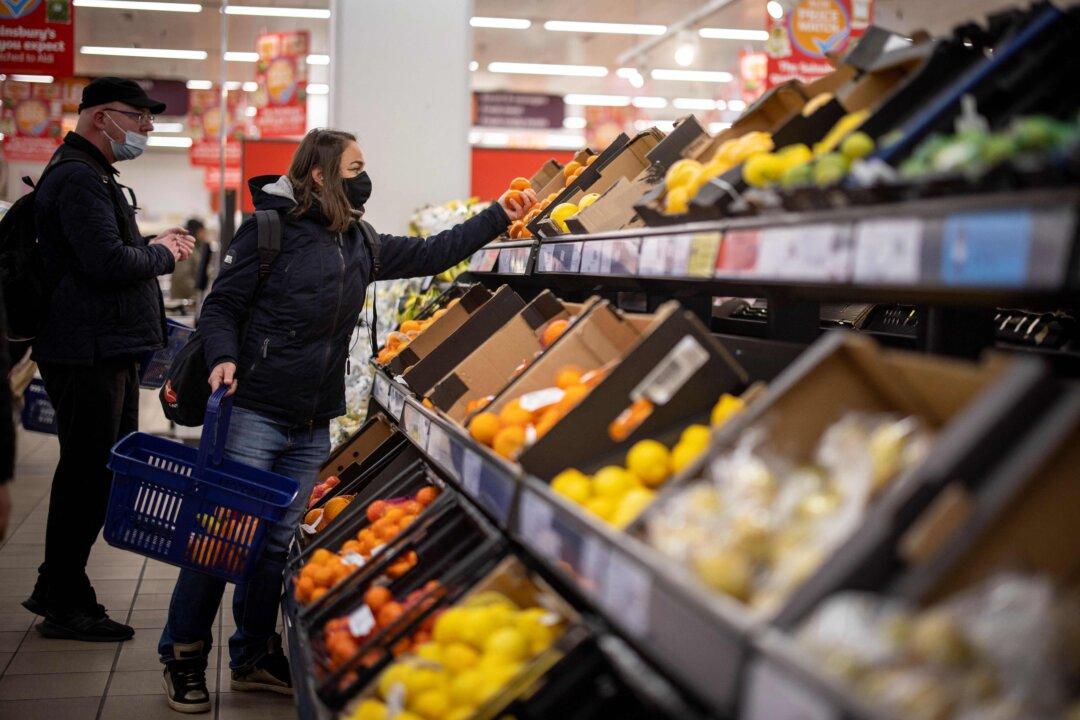Experts have warned that “extreme inflationary pressures” are likely to worsen in the United Kingdom, and stated that the country is already in the midst of a recession.
Alex Veitch, director of policy at the British Chambers of Commerce (BCC), made the comments in a press release on Sept. 1, where the BCC again downgraded its expectations for growth in the UK’s gross domestic product (GDP) for this year, to 3.3 percent from 3.5 percent in the second quarter against a “deteriorating economic outlook.”




